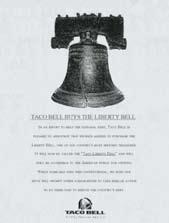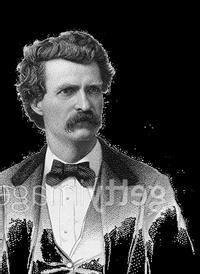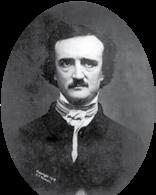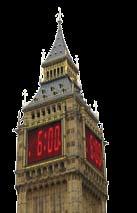>>Timeline
1508 Poet Eloy d’Amerval refers to poisson d’Avril (April fish), the French term for April fools.
1539 Flemish writer Eduard de Dene publishes a comic poem about a nobleman who sends his servants on “foolish” errands on April 1.
1686 First British mention of “Fooles holy day”, which is observed on April 1.
1698 One of the earliest of April Fool stunts: people were invited to go to the Tower of London to see the “annual ceremony of washing the lions”.
1789 An English newspaper claims that April Fool’s day had its origins when Noah dispatched a raven from the Ark too early.
1919 Residents of horse-free Venice wake on April 1 to find their famed Piazza San Marco dotted with piles of horse manure.
1993 A German radio station reports Cologne officials have outlawed joggers running faster than 9.6km/h so as not to disturb mating squirrels.
2002 UK supermarket chain Tesco
1992 US National Public Radio announces that disgraced former president Richard Nixon is to run again with the slogan, “I didn’t do anything wrong, and I won’t do it again.”

advertises genetically modified “whistling carrots”. Tapered air holes in their sides cause them to whistle when cooked.
2009 A British newspaper, the Guardian, announces it will only publish stories less than 140 characters long, via Twitter. Here’s how it said it would have covered the invasion of Poland in 1939:
“OMG Hitler invades Poland, allies declare war see tinyurl.com/b5x6e for more”.
Spaghetti harvest causes a stir
When it comes to fooling around, Great Britain is a world leader. Indeed, many believe a BBC TV hoax, broadcast over half a century ago still ranks as the best-ever April Fool’s joke. In 1957 the news show Panorama reported that, thanks to a mild winter, Swiss farmers enjoyed a bumper spaghetti crop. To prove this, it broadcast a three-minute report of Swiss farmers carefully plucking, or “harvesting”, strands of spaghetti from trees. Legions of viewers were duped and many called the BBC wanting to know how they could grow their very own spaghetti tree. The BBC advised each caller: “Place a sprig of spaghetti in a tin of tomato sauce and hope for the best.”

133
photos: getty images
Corporate capers
Reasoning that a well-executed prank can result in valuable publicity, firms such as Google, Microsoft, BMW, Guinness, Virgin and others regularly try to get in on the fun. In 1996 fast-food chain Taco Bell announced it had purchased the famed US Liberty Bell, which it claimed it was renaming the “Taco Liberty Bell” and relocating it from Philadelphia to its headquarters in California. The company claimed publicity from the hoax led to increased sales of over US$1 million on April 1-2.

When Google, a chronic hoaxer, launched its Gmail service on April 1, 2004, people assumed it was another hoax. However, when it turned out to be real, the company got the last laugh by receiving yet another round of free publicity.
YOUTUBE FLIPS OUT On April 1, 2009, YouTube turned some of its videos upside down. A page on “tips for viewing the new layout” suggested users hang their monitors upside down from the ceiling, although the layout did not reverse mouse-control.
PRANKS TO PULL
Want to get in on the fun?
>> Bored at work? Make a dozen photocopies of a paper clip on a plain white background, and put these in the machines paper tray so everyone’s copy will include a paper clip. Watch your colleagues go crazy trying to find the clip stuck in the copier.

>> Phone a friend at work during lunch hour and leave the message to call back any of the following names, and leave a number for the local zoo: Mr C. Lyon; Ms Anna Conda; Mr Don Key, and – an all-time favourite – Mr Behr.


Joker beware: In one survey, 68% of the executives questioned thought April Fool’s pranks were unsuitable for the office.

“Here cometh April again, and as far as I can see the world hath more fools in it than ever.”
Charles Lamb
“April 1. This is the day upon which we are reminded of what we are on the other three hundred and sixtyfour.”
Mark Twain
Around the world
Denmark


In 1965 a Copenhagen newspaper reported parliament had passed a law that all dogs be painted white to improve road safety, because they could be seen clearly at night.

France

According to Le Parisien in 1986, the Eiffel Tower was going to be dismantled and rebuilt in the new Euro Disney park.
Taiwan

The Taipei Times claimed that “Taiwan-China relations were dealt a severe setback yesterday when it was found that the Taipei Zoo’s pandas are not what they seem.” The paper reported that the pandas, a gift from the Chinese government, were brown forest bears dyed to resemble pandas. The paper received many complaints, including one from the enraged zoo director.
China

Claiming that it would reduce the need for foreign experts, the China Youth Daily joked in 1993 that the government had decided to exempt PhDs from the nation’s one-child-per-family policy. After foreign press picked up the hoaxed story, the government condemned April Fool’s Day as a Western tradition.

Meet
Olaf Priol
Norway
After reading that the government was planning to distribute more than 10,000 litres of wine confiscated from smugglers, hundreds of citizens turned up carrying empty bottles and buckets.
Germany

In 2009 BMW’s German headquarters ran an ad in UK newspapers promoting their new “magnetic tow technology”. The invention enabled drivers to turn off their engine and get a “free ride” by locking on to the car ahead of them via a magnetic beam.

Canada

In 2008 WestJet Airlines advertised its overhead cabin bins were “among the most spacious of any airline”, and it would cost passengers an extra fee of $12 to sleep in these “sleeper cabins”.
Jordan
Residents fled after a Jordanian newspaper published a story in 2010 claiming that flying saucers piloted by 3m high creatures had landed in the desert town of Jafr.

Mr Priol and a host of oddly named friends make appearances throughout the media on April 1. (His name is, of course, an anagram for “April Fool”.) Beware anything attributed to Pia

Laroof, Loof Lirpa, Mr Jo King, Jurgen Fallforit or the comely April Holiday. Oh, and as for Mr Alfi Lorpos, who wrote this article – the rest of the year he’s known as Robert Kiener.

photos: getty images

 By ALFI LORPOS
By ALFI LORPOS













